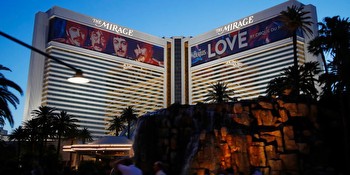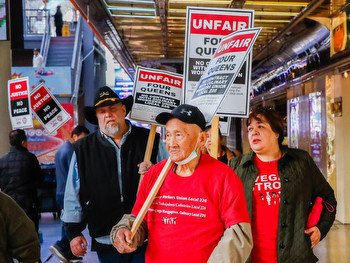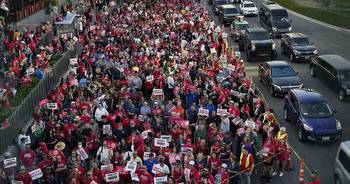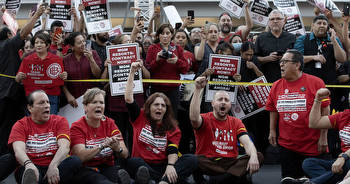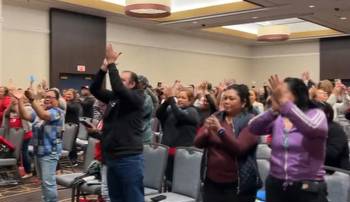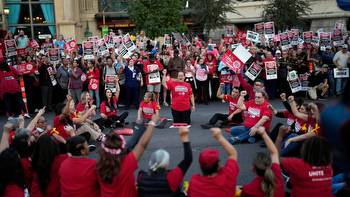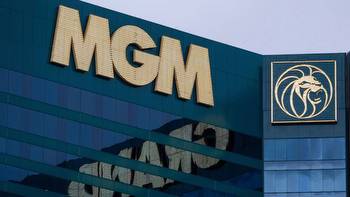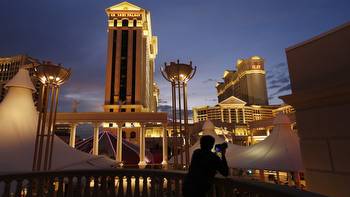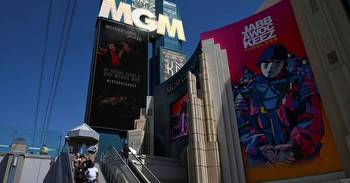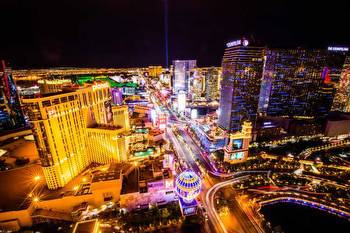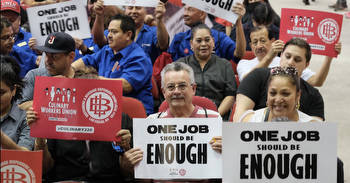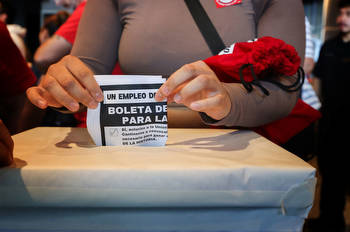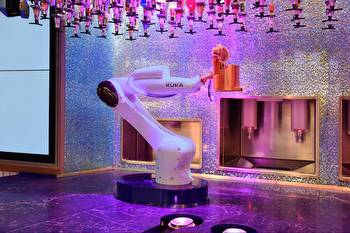In Vegas casino union dispute, balancing tech and a personal touch was key
Culinary Union wins job protections as hotels increase technology and automation in an effort to ‘reduce costs’ and ‘improve efficiencies.’
In 2019, Sherie Evans Earl and her cocktail server colleagues were excited about the Smartender, a mixed drink dispenser machine coming to the Mandalay Bay Resort and Casino to help speed up bar service for casino patrons.
But the current reality is “totally the opposite,” the 50-year-old said.
“I think the old-fashioned, pouring the drink with a gun is a lot quicker and faster than the several steps the Smartender takes,” said Evans Earl, adding that she has to input the order into the system and then into the machine and wait for the drinks to be dispensed.
It sometimes takes up to 10 minutes for large orders or the machine loses the order, she said.
“By the time I get out to the casino floor to serve the guests, most of them are gone or sometimes they are angry,” she said. “So we're not getting a tip from it. It's frustrating.”
Evans Earl, who has been in the industry for 24 years, spoke about her experience in an interview with The Nevada Independent and at a press briefing hosted by the Culinary Union, which made its goal of putting guardrails on automation to prevent job losses a key tenet of negotiations before agreeing to contracts earlier this month with major Las Vegas Strip hotel companies.
In a 2019 press release MGM Resorts International, which owns the Mandalay Bay, announced a companywide effort to “reduce costs, improve efficiencies” and “maximize profitability” by investing in technology.
UNLV School of Hospitality professor Mehmet Erdem said that having technology in the industry is “inescapable,” and not adapting would make the companies “fall behind.”
“Historically, technology has always created more jobs, new jobs,” Erdem said. “When I used to work in the hotels, there were switchboard operators. They had guest service skills. You might eliminate the position but not the person. You don't get rid of the talent.”
At a press conference during the contract dispute, Ted Pappageorge, the union’s secretary-treasurer, said that the resort companies had “gone backwards” negotiating their requests surrounding automation and technology.
But after finally reaching a tentative deal on new five-year contracts that averted strikes at the largest Strip properties — MGM Resorts, Caesars Entertainment and Wynn Las Vegas — Pappageorge said the agreements include increased safety protections for workers on the job and expanded technology contract language.
Though official contract language was not released, union officials said some of the protections include six months’ notice ahead of new technology implementation, access to and training for any new jobs created by technology, and a health care and severance package for unionized workers laid off because of new technology.
“Folks who work 20 years in a hotel and you're eliminated or laid off because of technology, that's a $40,000 severance check,” Pappageorge said. “We think [automation would] be incredibly damaging for workers if it's just completely unchecked.”
A promotional blog post by Barry Fieldman, a managing member at Smartender manufacturer Smart Bar USA, states that its technology is often met with “resistance and skepticism” that it is designed to directly replace humans. The new technology instead helps with labor shortage issues, product waste and consistency, he stated, adding that it also makes service workers’ “jobs better, more efficient and less mundane.”
Smart Bar did not respond to a request for comment or an interview with Fieldman.
Erdem said that the hospitality industry should have a balance between “high tech and high touch” — humans and technology working together to give the best experience to the customer.
“People focus on the cost-saving feature of it, and they forget what business they're in. You're in the business of creating positive experiences. That's what service is about,” Erdem said. “The balance of high touch and high tech is very, very important, especially when it comes to automation.”
Evans Earl agreed that change is inevitable, but her ability to provide quality service has been affected by Smartender and her longtime customers have noticed, too.
“We're not against technology. We just want a say in our contract about how we work together with technology in our jobs,” Evans Earl said.
Her clients want customer service and to be “pampered,” Evans Earl said, and she believes incorporating more automated services could lead to erasing the human touch that defines Las Vegas’ hospitality industry.
“When people come to Vegas, they want to get away,” Evans Earl said. “Hospitality is coming here and having everything done for you that you don't do at home.”








